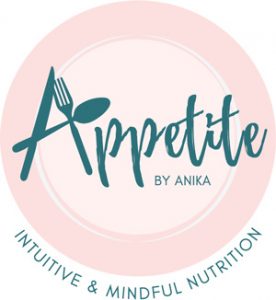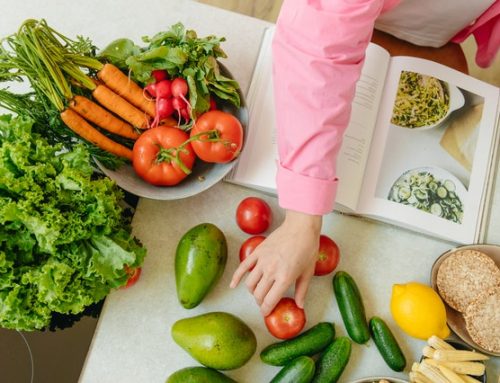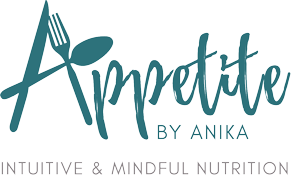Are you eating healthily, incorporating lots of fruits and vegetables in your diet, but feeling confused why you can’t seem to get rid of the “bloated” feeling in your stomach? You’re not alone because bloating is not uncommon – in fact, 10-30% of people experience or have experienced it, with women being more badly affected. In this blog post, I’ll unpack what bloating is and some of the common causes of bloating.
What is bloating?
Bloating is often associated with a noticeable swelling (physical or sensational) in your belly, usually by air, and may cause pain or discomfort in some people. It usually happens after eating, based on what and how you’re eating.

What causes bloating?
1) Diet foods
Foods like sugar-free protein bars, sugar-free protein powders, sugar-free candies and sugar-free soft drinks have fewer calories than their regular sugar counterparts as they often contain artificial sweeteners (sugar alcohols) instead of sugar, making them lower-calorie.
However, these artificial sweeteners are poorly digested in most people, causing gassiness and bloating. Carbonated drinks can also continue producing gas in your stomach, exacerbating the bloat.
Tip: Look out products labelled “sugar-free” or “no sugar added”, and ingredients such as sorbitol, mannitol, xylitol and erythritol.
2) Eating too much, too fast
Hunger signals are working in overdrive especially when you’re dieting. Thus, there’s a tendency to scoffs down larger portions you finally get to eat your meal. In general, having large amounts of carbohydrates can cause gas.
Eating too quickly and not chewing your food properly can lead to swallowing too much air, which can contribute to bloating. Potential overeating may also cause uncomfortable feelings of fullness and bloating.

3) Constipation
Unintentionally eating less fibre when dieting, especially found in carbohydrate foods, can cause constipation and subsequently bloating and wind when things aren’t moving along properly. Eating less food while dieting can also make it more difficult for food to pass through the gut, leading to constipation and bloating as well.
4) Eating too much fibre at once and cruciferous vegetables
Eating too little fibre can cause constipation and bloating, but eating too much fibre may also have the same effect for some people. Some foods like wheat bran, whole grains, legumes, broccoli, cauliflower, green beans, apple, raisins, leek, onion, and other “windy” vegetables high in insoluble fibre may cause more gas production and worsen bloating.
Cruciferous vegetables (cabbage, cauliflower, Brussel sprouts, radish, broccoli, arugula, bok choy, collard greens, watercress) are a great source of important nutrients such as vitamin A, C, K and folate. But cruciferous veggies contain raffinose which is an oligosaccharide that humans actually don’t have the enzyme to digest. This means that it enters our large intestine undigested and that’s why you’re more likely to experience gas and bloating. If you are sensitive to certain foods, I’d suggest speaking to a health professional for guidance.

5) Food intolerances
It’s not uncommon to be intolerant or gut-sensitive to things such as the lactose in dairy, spicy foods, fried or fatty foods, foods high in insoluble fibre, alcohol, and caffeine in coffee and tea. Some conditions include IBS, Coeliac disease and lactose intolerance.
These foods may not be digested properly in some people, causing gas production and bloating. It’s worth seeking help from your local dietitian that specializes in gut health if you need help identifying the foods you are intolerant to.

6) High sodium diet
When we have too much salt in our diet, our body holds onto more water which can result in bloating. High salt or sodium foods can come from pre-packaged, processed foods or dishes where salt was added in cooking. This is usually not a problem in the short term and be fixed with adequate hydration but can raise your blood pressure over time.
7) Drinking through a straw
If you are someone who likes to drink your beverages through a straw or chews gum, you may be experiencing aerophagia (Latin for air swallowing). Air is full of nitrogen and Swallowed air can contribute to gas. When we swallow air into our digestive tract, it has only two options to exit: to be burped out or farted out. Chewing gum and sucking on hard candies can have a similar effect.

8) Probiotic supplements
This may come as a surprise as people take these supplements to improve their gut health. However, these supplements may sometimes worsen symptoms of gas and bloating. A study from 2018 reports that probiotics can aggravate gas, bloating, abdominal pain and even some associated symptoms like “brain fog”. Many of these participants had SIBO (Small Intestinal Bacterial Overgrowth). If you are experiencing symptoms, it may be best to discontinue supplements, monitor your symptoms and see a health professional.
9) Stress
Last but definitely not the least, stress levels and how well you manage them can affect your digestion abilities. Stress can cause nerve endings in your digestive tract to be more sensitive, causing greater levels of discomfort.
There is a myriad of reasons bloating can occur, and while it may be easily managed for some, others may struggle with more pain and discomfort. Stay tuned for Part 2 of the Link Between Dieting and Bloating, where I discuss how you can manage your bloating symptoms and feel better.
Need help with identifying triggers and managing your bloat? Don’t hesitate to book in for a Complimentary Discovery Call.






